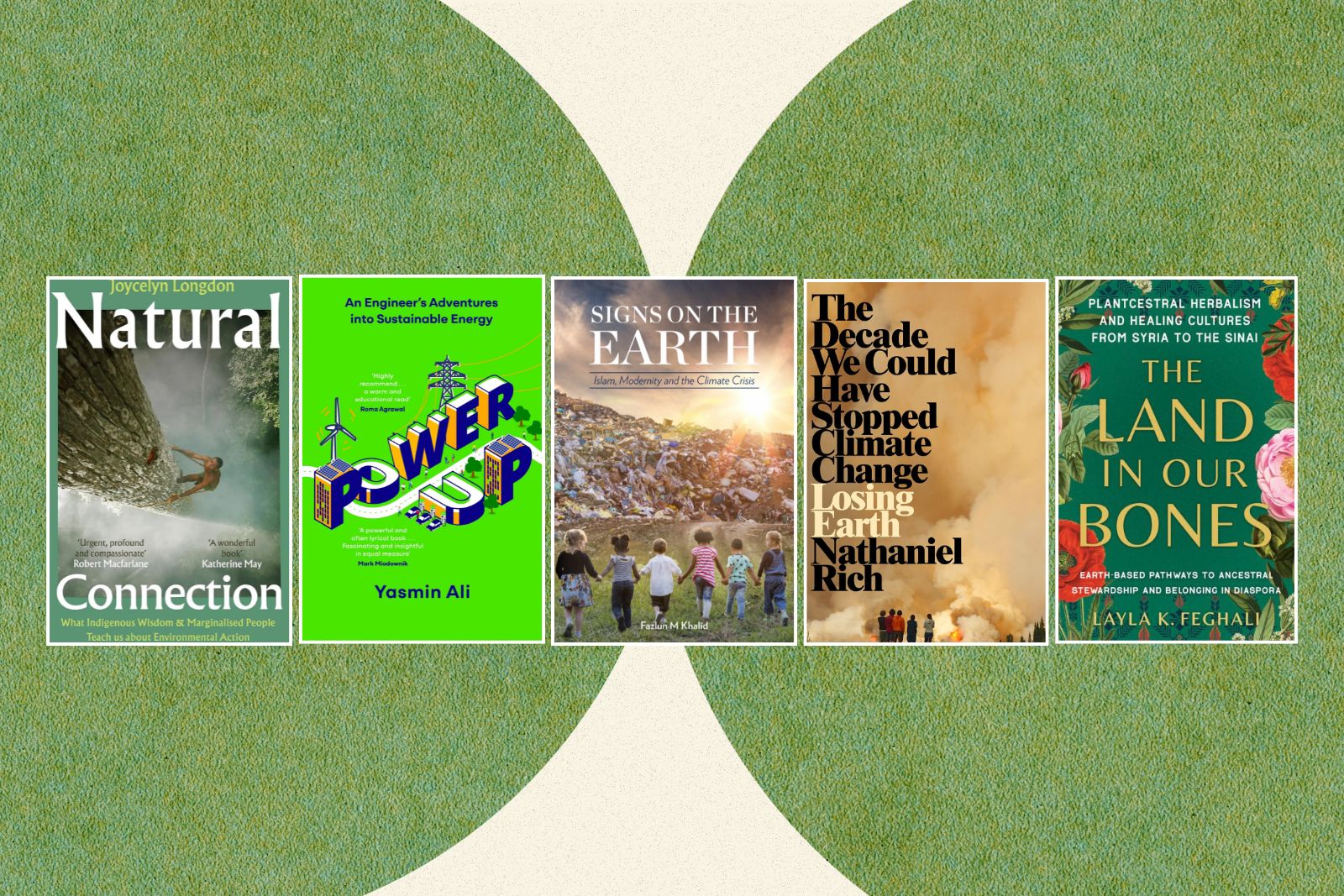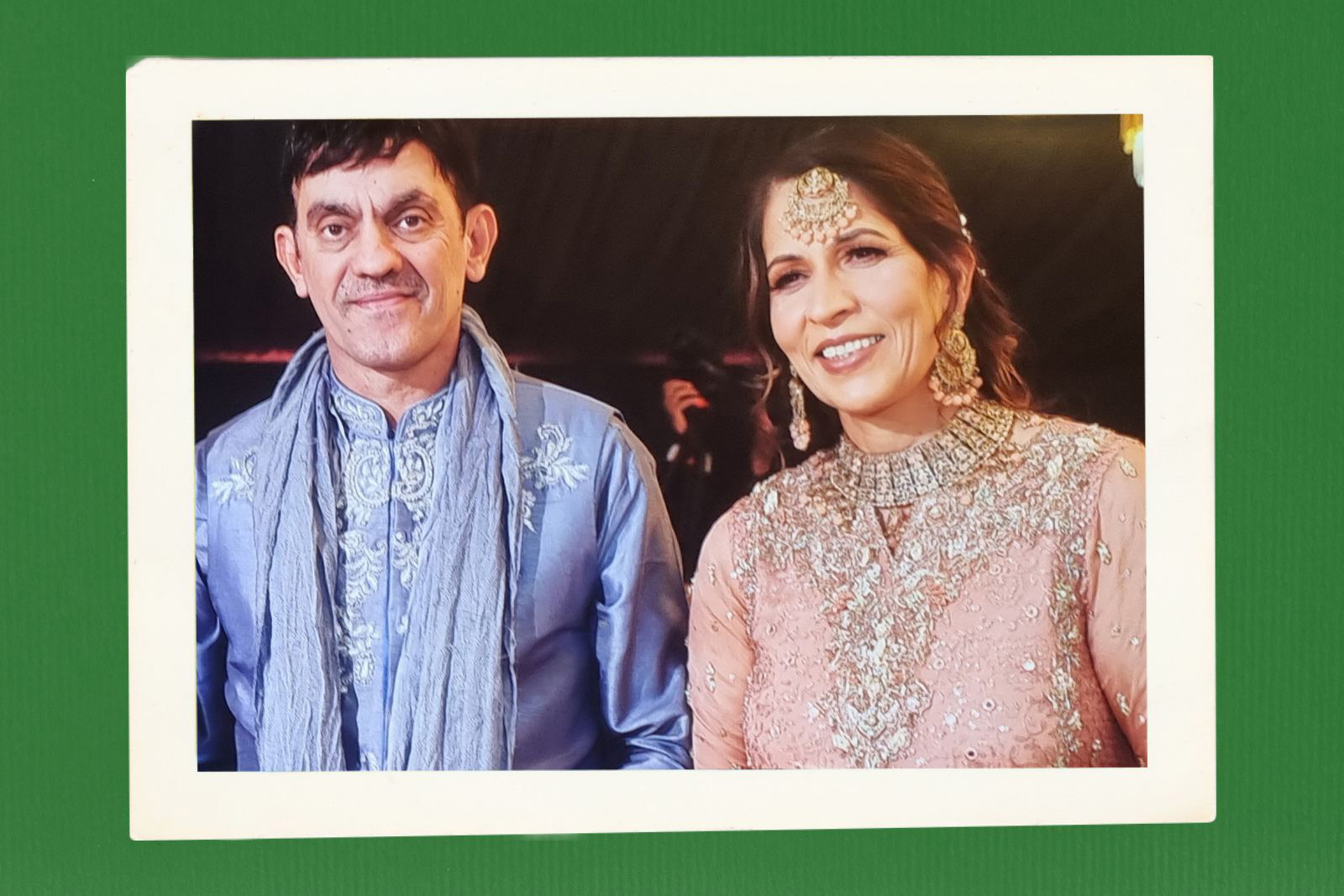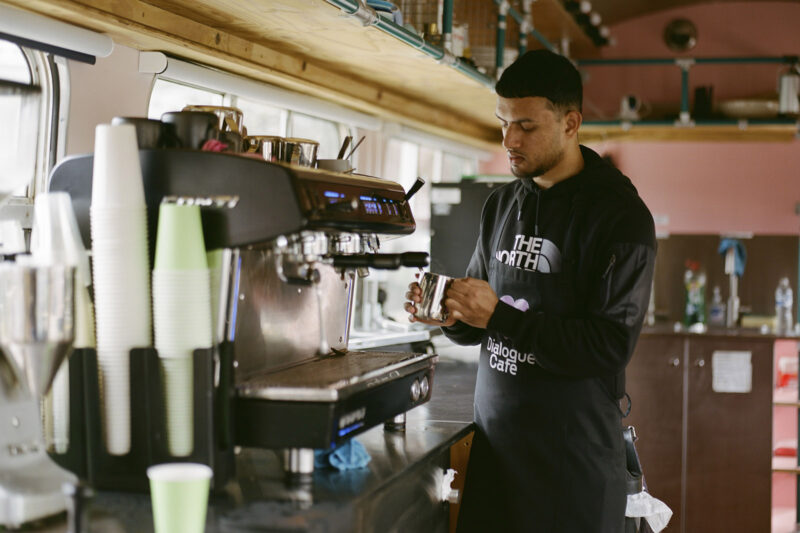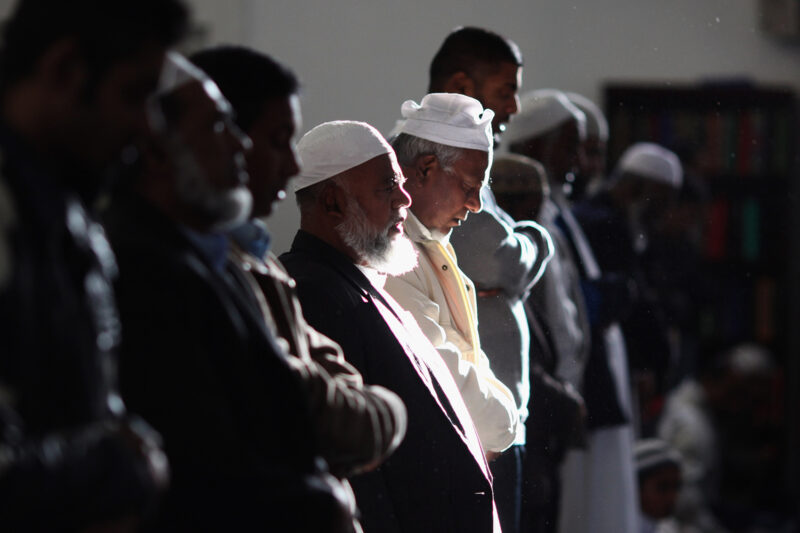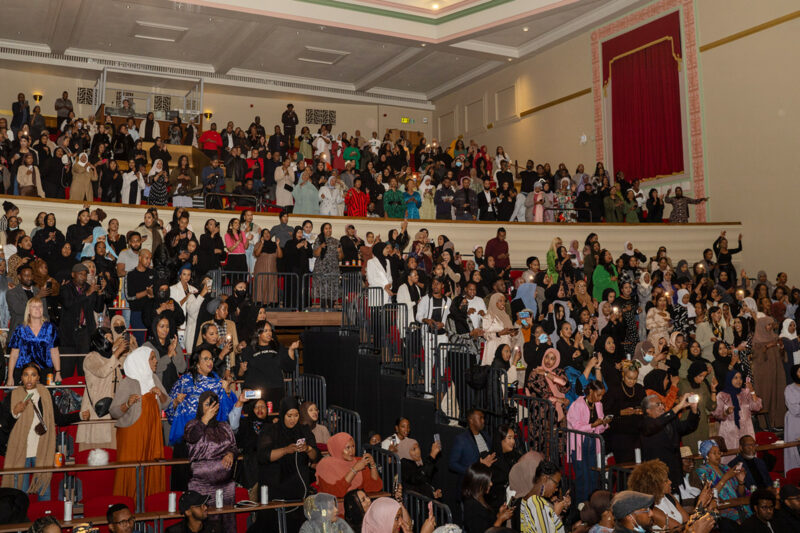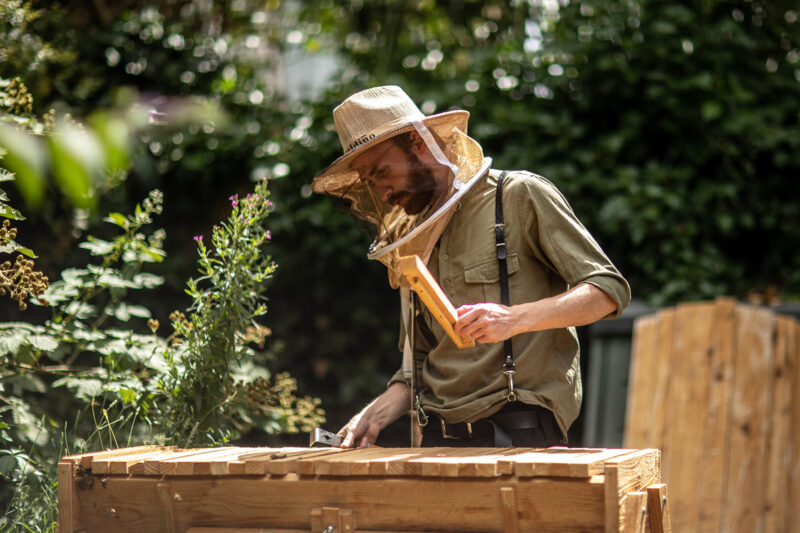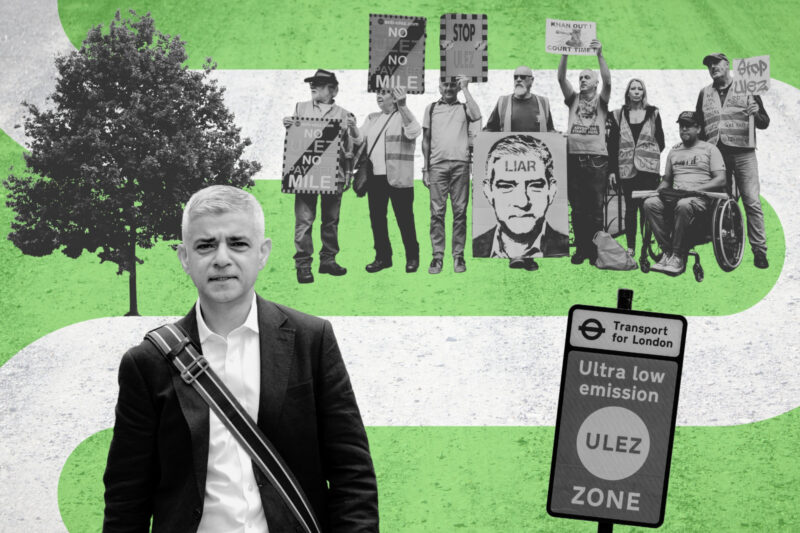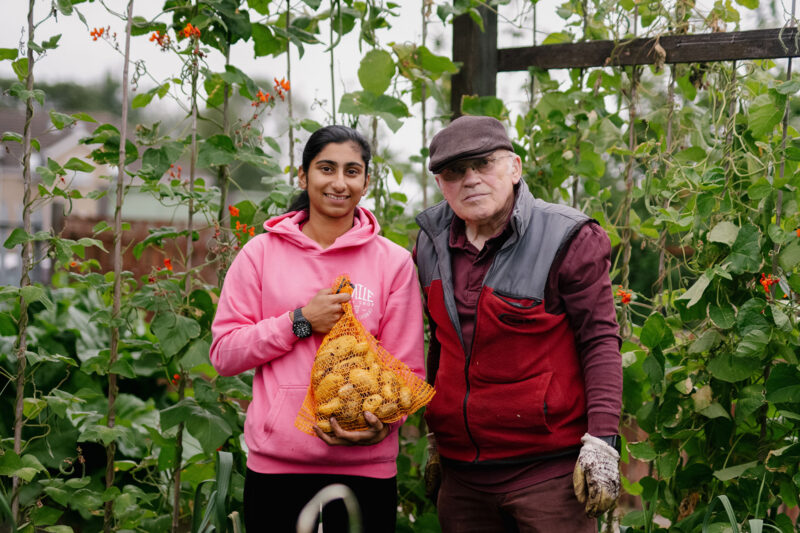Sustainably Muslim: the movement reconnecting communities with nature
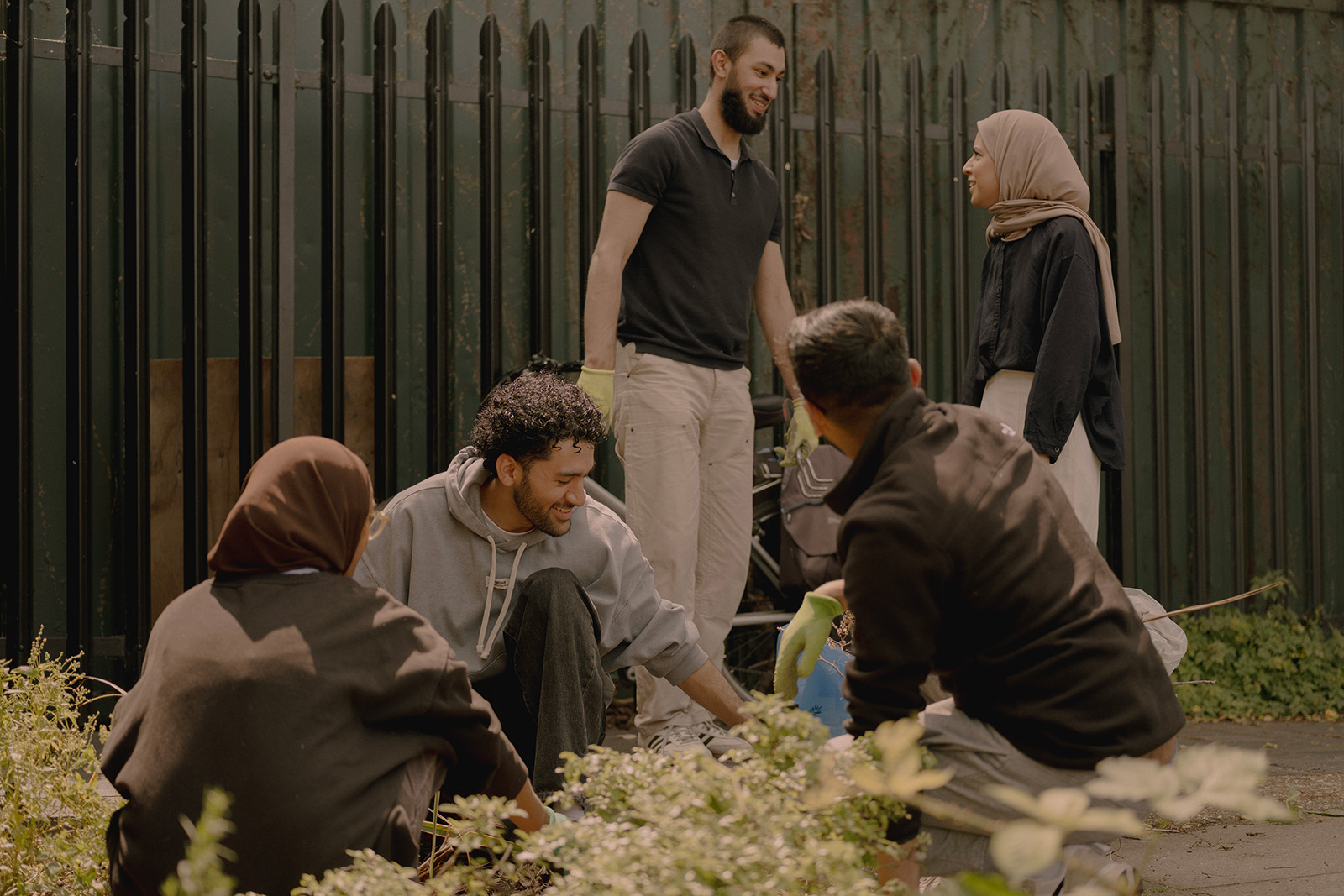
In our new series highlighting the people creating positive change in our communities, we visit a Muslim-led group in east London building grassroots climate action one garden at a time
A short while ago, Prime Minister Keir Starmer warned that the UK risked becoming an “island of strangers” without tougher immigration policies. His words came at a time when the far right poses its most serious threat in decades, with communities still recovering a year after racist riots and protests continuing outside accommodation housing people seeking asylum. In light of this, our new series Island of Neighbours tells stories of community cohesion and of grassroots projects bridging divides.
“Let’s pretend the snail is taking the picture,” laughs Tahsina Writer, gently cupping the creature in both palms as she leans in for a selfie. It’s a warm summer morning and Writer and eight other volunteers have just finished a two-hour gardening session at Trinity Community Centre in Canning Town, east London.
The project led is Sustainably Muslim, a grassroots initiative founded in 2020 by Nazia Sultana to encourage more Muslims to get involved in environmental action.
What was once a neglected patch of grass behind the weathered brick centre is becoming a vibrant garden, with edible plants such as wood avens, red campion and garlic mustard, alongside pollinator-friendly species including lavender. After a two-year break while Sustainably Muslim focused on other community projects, the garden was revived earlier this summer and volunteers now meet regularly to tend to the space so it can be used by locals for food growing.
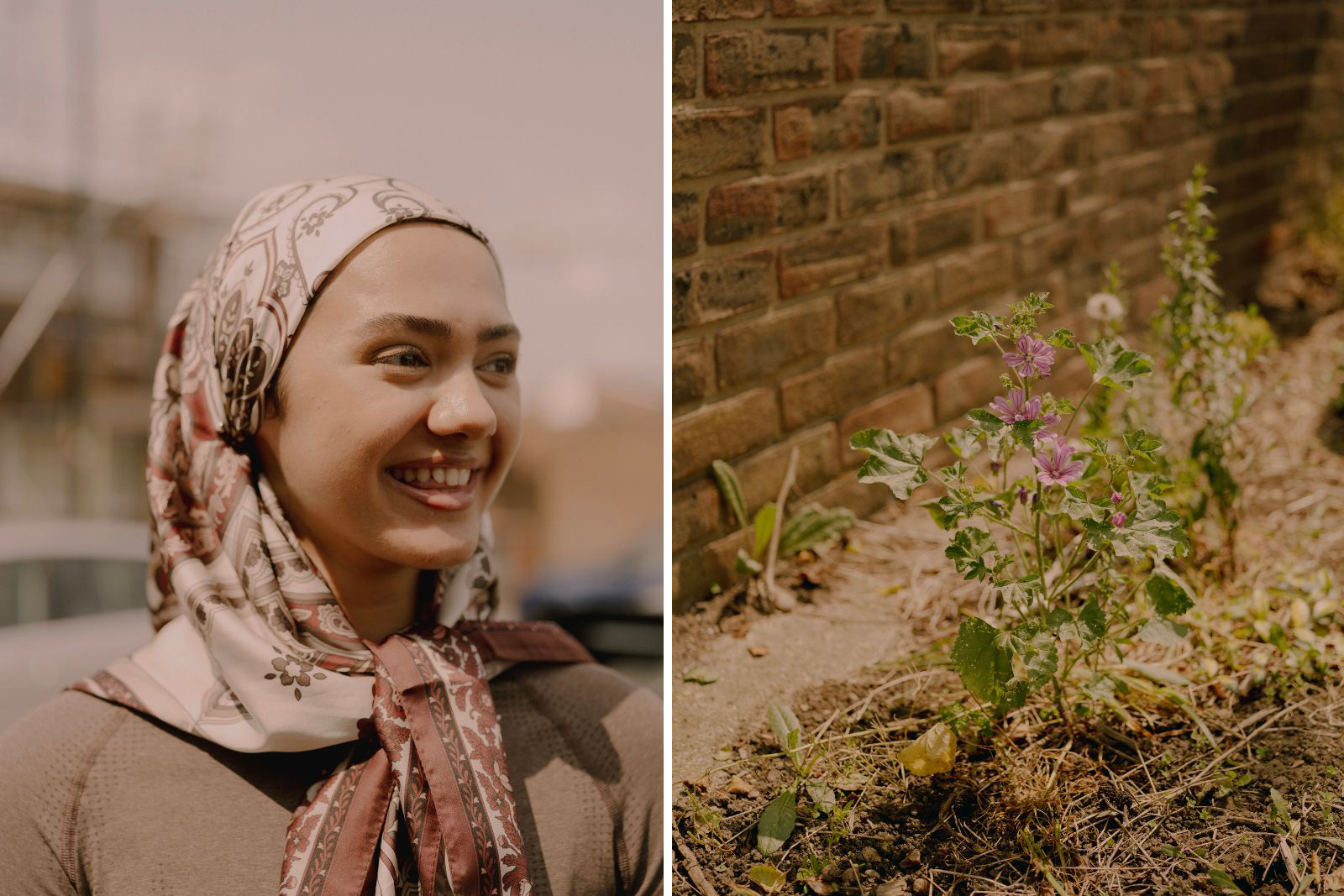
Across the UK, grassroots initiatives from Sustainably Muslim to Incredible Edible have emerged in response to the climate crisis and social inequalities, particularly in areas where access to green space is limited. The idea is to take over unused land and turn it into gardens and plots for the community to use and learn about environmental protection at a local level.
“There’s really a need for these spaces,” says Sultana. “A lot of people want to make a positive impact on the environment and within their own communities. Sustainably Muslim is like a support network.”
According to research by the charity Groundwork, people from ethnic minority backgrounds are less likely to live within a five-minute walk of a green space, report good walking routes in their area or have green spaces within walking distance at all. Access to nature has been found to help reduce anxiety and loneliness and have a positive impact on mental health.
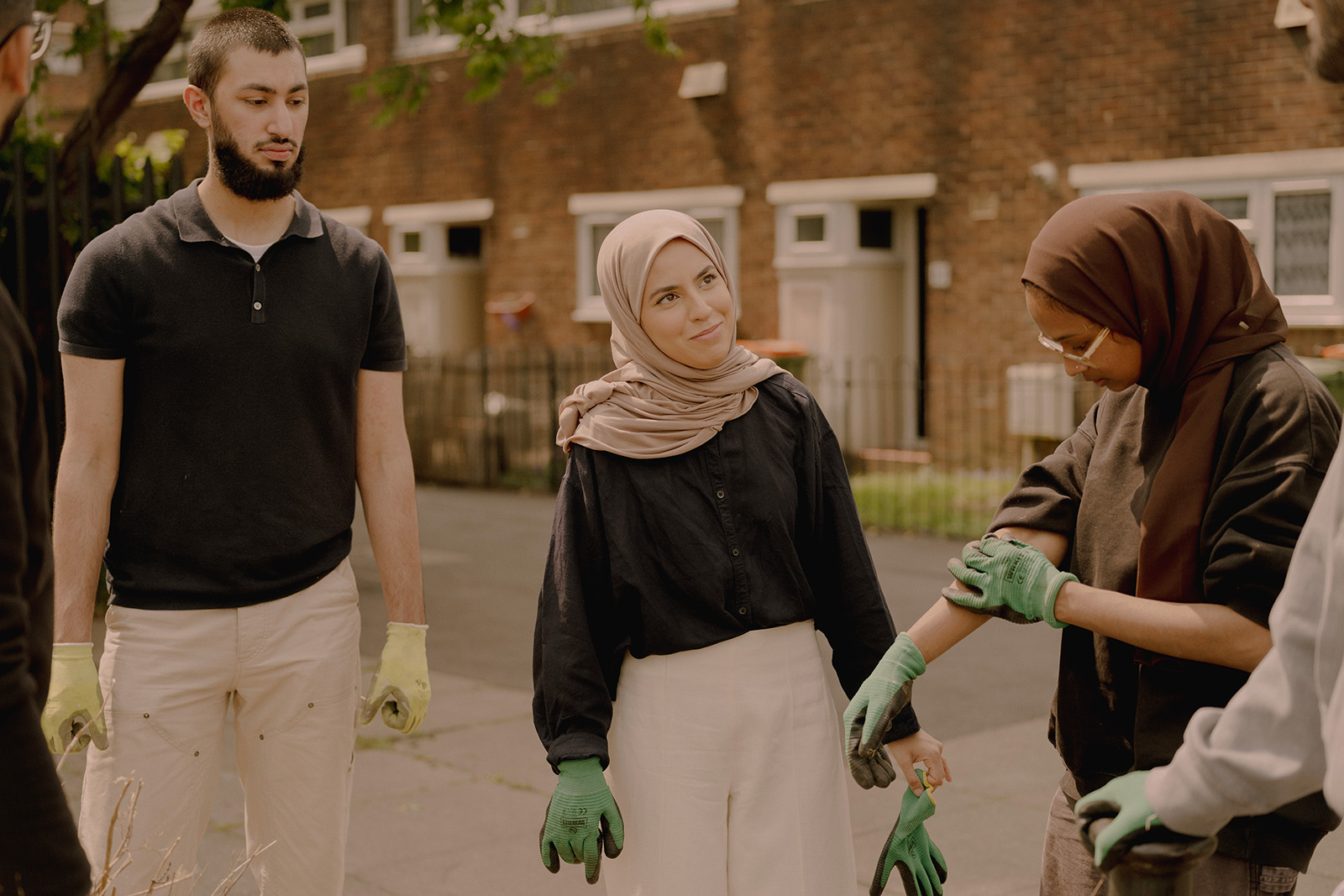
Sultana, who grew up in east London, says she has always felt a close connection to the environment. “I think it came from my parents, who showed such compassion towards people and animals,” she says. “My dad would randomly come home with an injured bird sometimes, and we’d nurse it overnight. Seeing these small birds, I realised the magnitude of life.”
As well as building the community garden, Sustainably Muslim partners with organisations such as the Bat Conservation Trust and the Bumblebee Conservation Trust. “The events are really centred around getting Muslims into conservation. It’s the second least diverse sector in the UK after farming and agriculture. I wanted to help bridge that gap,” Sultana says.
“I’m Muslim but I didn’t really grow up doing this kind of hands-on stuff,” says Writer as she pulls clumps of weeds from the soil. “This was the perfect chance to learn.”
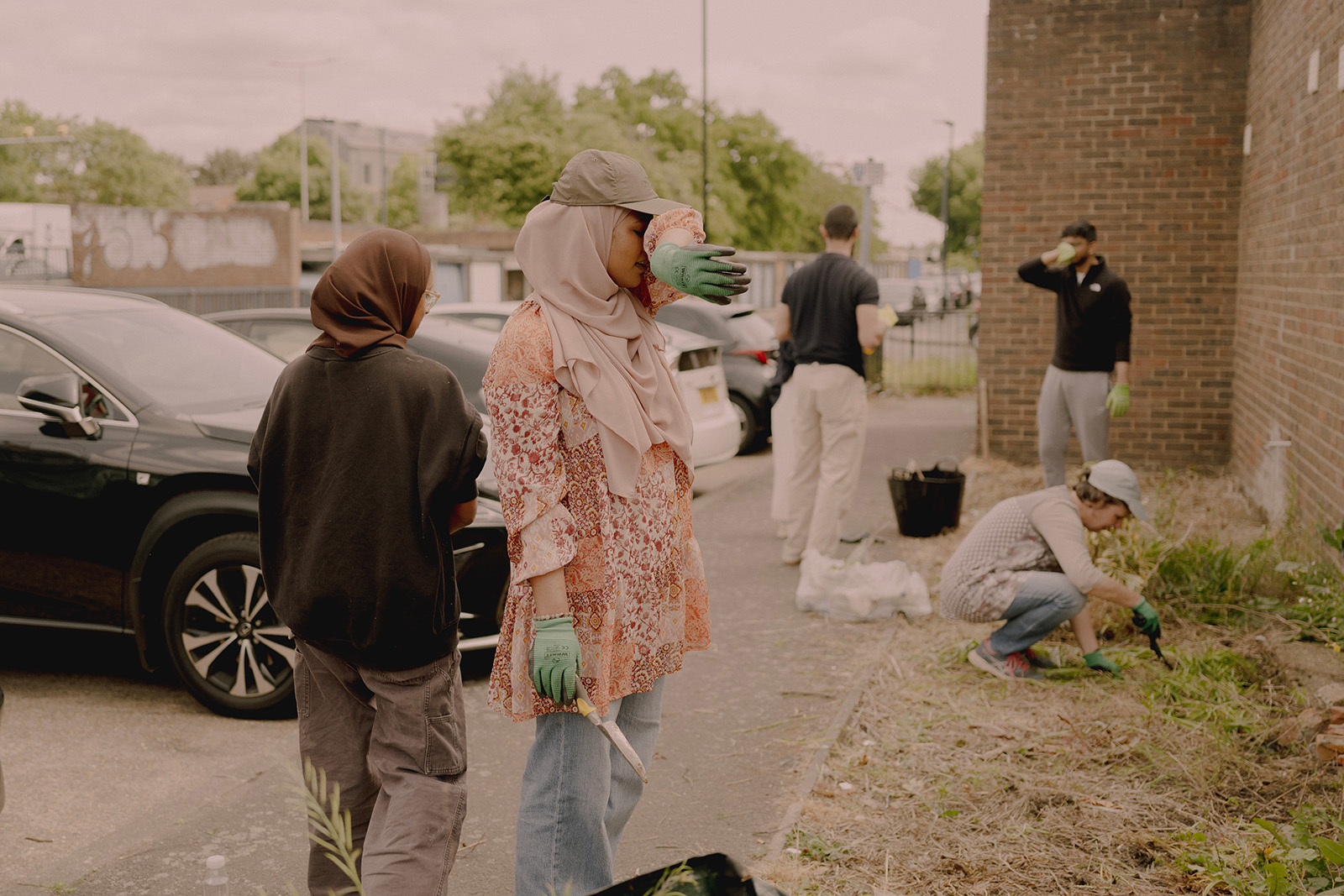
Writer is among many young Muslims finding a new connection to nature. This shift is reflected in Sustainably Muslim’s 2024 Muslim Climate Action report, co-authored by Sultana. Surveying more than 200 people, the report found that 93% are concerned about the climate crisis and feel there isn’t enough Muslim representation in discussions about the climate.
The report also found that volunteering with local environmental organisations, along with community dialogue and educational workshops, are some of the key ways that people would be willing to take climate action.
“Globally, there are two billion Muslims and four million in the UK. Governments and external organisations may not be seen as trustworthy or the most inclusive; whereas faith-based environmental messaging has the potential to help motivate millions of people to take greater action,” the report reads.
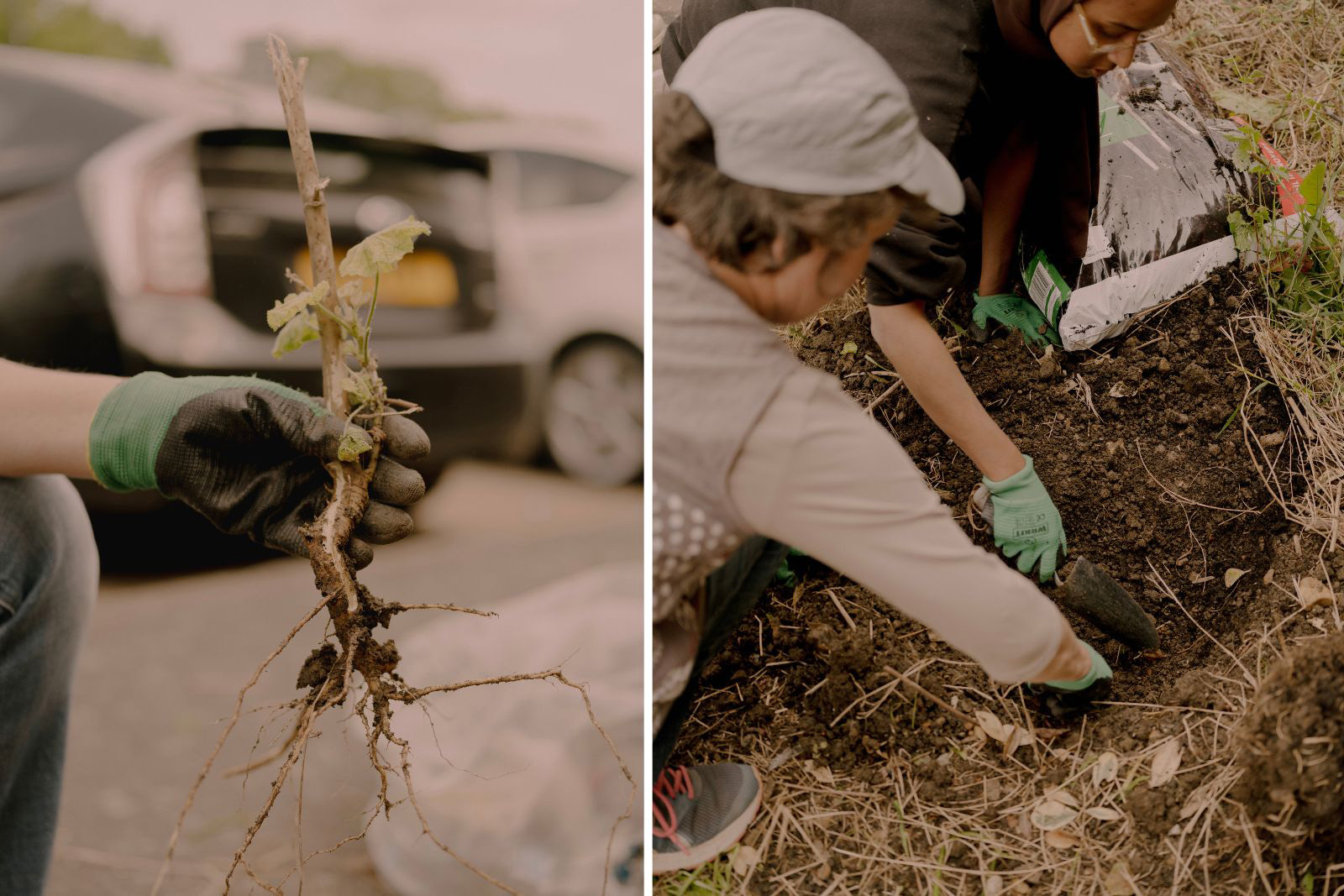
Mareeam Ahmed, who is leading today’s gardening session, agrees. “As Muslims we should be taking care of the earth. We’re given this title called khalifa which means caretaker,” she says. “Our faith revolves around nature — we pray during the different solar events and our festivals revolve around the lunar calendar. It’s a huge part of Islam.”
Ahmed gestures to the patchy soil around her, gloved hands covered with compost. “This is an act of worship. When we plant a seed, you’re benefiting the people through the fruits, the animals, the soil, the air, the whole ecosystem. When humanity first started, we were foraging. Hopefully we will figure it out, and everyone will understand it and internalise it,” she says.
“We need this message spread throughout the wider community. We need to have all kinds of people, not just Muslims, involved in sustainability efforts.”
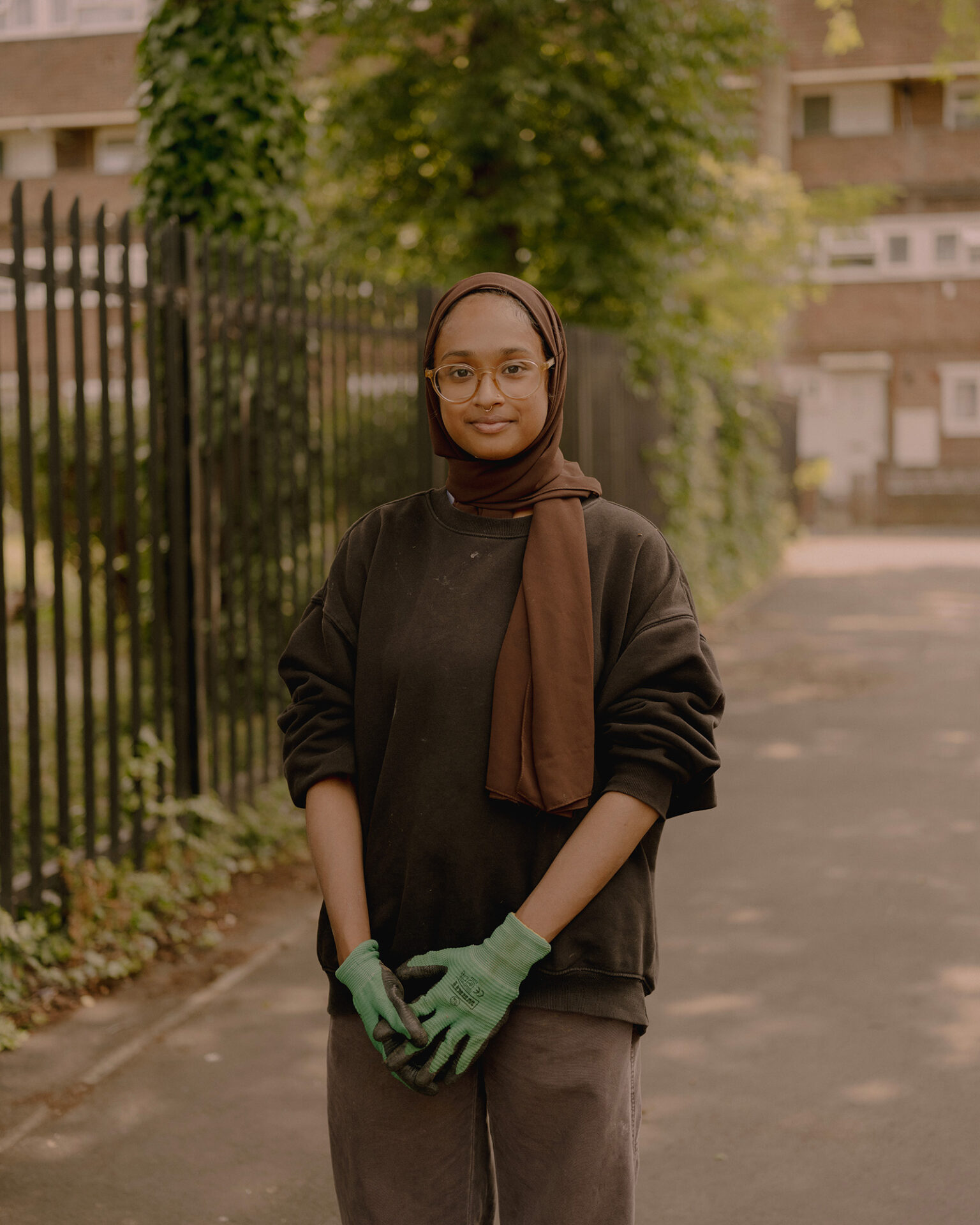
It seems their work is gaining momentum. “Last time I was here, people in the community were dropping by and saying hi and asking how we were,” says Ahmed.
“People that come to the community garden all care so deeply about community and connection. That sense of belonging is a big part of what draws people to the work that we do,” adds Sultana.
Even the choice of herbs and vegetables is targeted to local people — they’re growing carrots, tomatoes and chillies. “There are a lot of minority communities here who’ll be able to benefit from that, especially the scotch bonnets,” Sultana says.
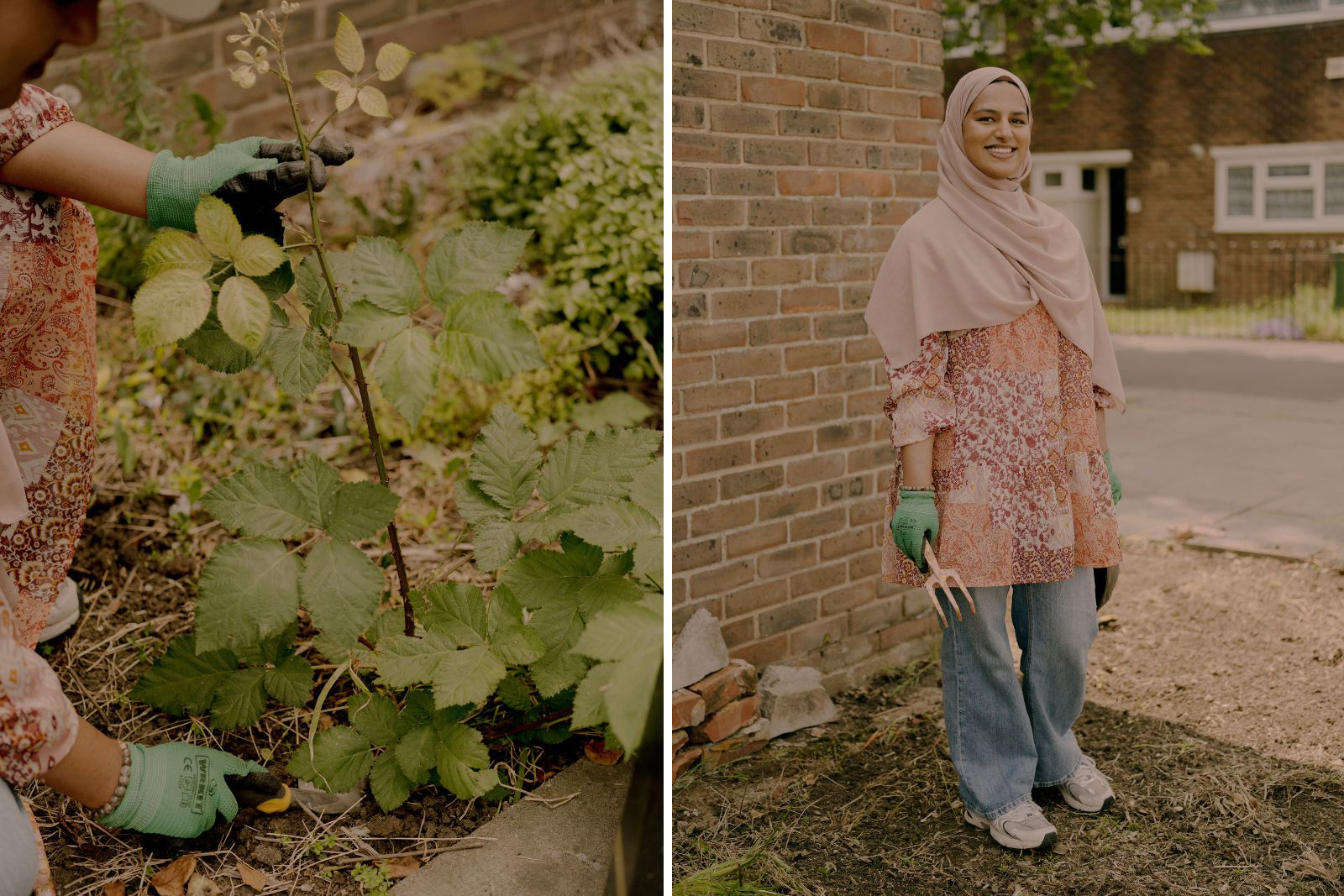
For Sustainably Muslim, this is only the beginning. “I don’t want to keep it just at this particular site. I’d love to see it grow to Bradford, Manchester, wherever, with those local communities thinking about what plants and vegetables work best for them. It becomes something self-sustaining,” Sultana says.
“I’ve always believed that nature has a way of bringing communities together.”
 Newsletter
Newsletter


